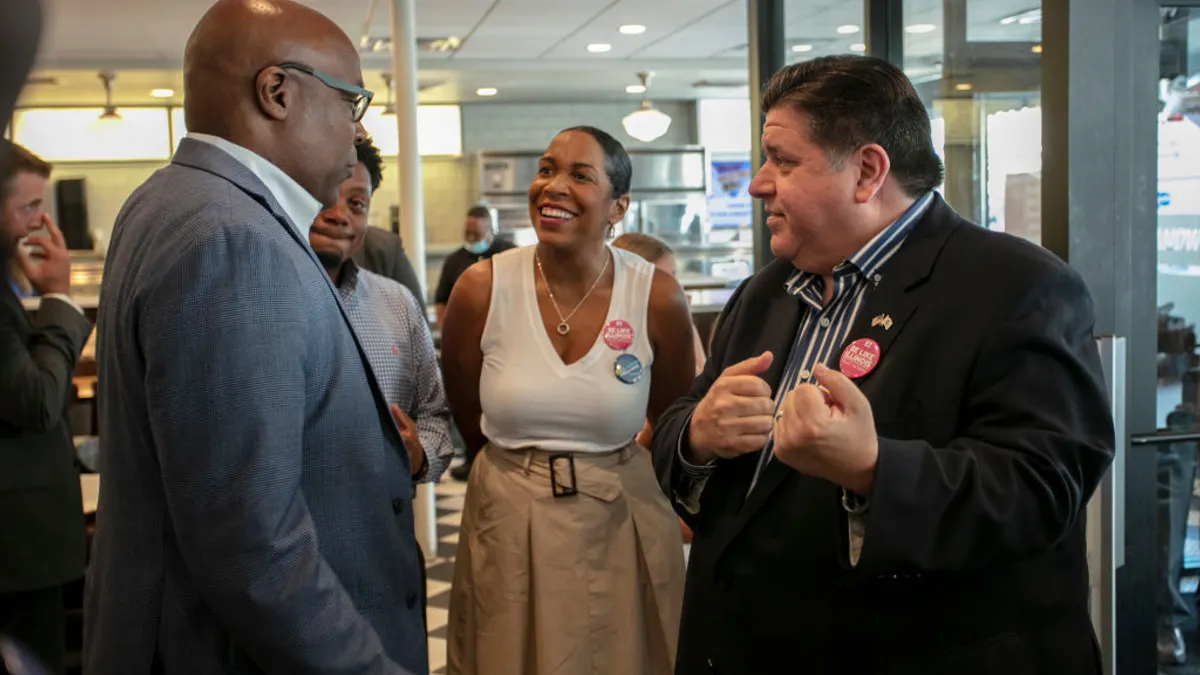While 2018 may still have a few surprises in store, the final weeks of the year often are a time for employers to re-evaluate the employee handbook and revisit training curriculum.
And aside from the obvious mandatory changes — like new state mandates for sexual harassment training or prohibitions on salary history questions — there were a handful of court rulings this year that could very well reshape the employment law landscape in the near future, and employers may want to make note of them now, according to Louis R. Lessig, a partner at Brown & Connery, LLP.
There are, of course, the big ones. The U.S. Supreme Court's major blow to unions in Janus v. American Federation of State, County and Municipal Employees, Council 31 (No. 16-1466) is one, the effects of which remain to be seen. The High Court also approved collective action waivers in Epic Systems Corp. v. Lewis (No. 16-285) — also considered a major win for employers. But Lessig noted that lower courts are, for better or for worse, still shaping so many of the issues that HR professionals deal with every day.
Harassment
If HR professionals remember 2018 for anything, it likely will be the #MeToo movement. The cultural shift has emboldened victims of sexual harassment to speak up, and many employers found themselves unprepared. Court rulings (and lawsuit filings) made this clear, but perhaps none will have as big and lasting an impact as Minarsky v. Susquehanna County; Thomas Yadlosky, Jr., No. 17-2646 (3rd Cir., July 3, 2018), Lessig said.
In that case, the 3rd U.S. Circuit Court of Appeals held that an employee's failure to report sexual harassment for a number of years was not, on the face of it, unreasonable — and it paved the way for a jury to hear her claims. The employee said she was subjected to unwanted advances by her supervisor for years but never reported the conduct because she needed the job to pay for her daughter's cancer treatment and feared speaking up because of the man's temper. The court said that while an employee's "generalized and unsupported fear of retaliation is insufficient to explain a long delay in reporting sexual harassment," Minarsky offered several legitimate reasons that a jury could find reasonable.
"I don't think any case was more unnerving" in 2018, Lessig told HR Dive. "It basically takes 20 years of case law and turns it on its head." An employee's failure to alert the employer to harassment often served as a successful defense in these cases, he said, and that's no longer necessarily the case, at least in the 3rd Circuit.
It's an uncomfortable result for employers who, for years, felt that adopting a reporting procedure and conducting training was enough, Lessig added. Now, employers need to look at how they're training, he said; it's no longer just checking a box. This cultural shift is going to require that employers look at their overall program, and consider how they're training supervisors, Lessig said. Some are considering whether they need the civility and bystander intervention training that the federal government has suggested in recent years.
LGBT Discrimination
Continuing a shift that started last year, the federal appeals courts have continued to examine whether discrimination based on sexual orientation and gender identity amount to illegal sex discrimination under Title VII of the Civil Rights Act of 1964.
Most notable, according to Lessig, is a 6th Circuit opinion, Stephens v. R.G. &. G.R. Harris Funeral Homes, Inc., No. 16-2424 (6th Cir. March 7, 2018)). In that case, the appeals court found that discrimination against employees, either because of their failure to conform to sex stereotypes or their transgender and transitioning status, is prohibited by Title VII. According to court documents, the employer in the case fired an employee when she informed it that she would begin presenting as a woman at work, adhering to the dress code for women. Ruling in her favor, the court explained that "it is analytically impossible to fire an employee based on that employee’s status as a transgender person without being motivated, at least in part, by the employee’s sex."
Other courts have heard similar arguments regarding sexual orientation discrimination, and a split is emerging. The U.S. Supreme Court has so far declined to weigh in, but it will have several opportunities this term. "It's going to be fascinating to see where this ends," Lessig said. His prediction? "It will likely have to end, I think, in Congress," he said, because it's doubtful that the High Court, with its current makeup, will agree with the 6th Circuit.
For now, however, the ruling has created an interesting question: What should employers be doing? To avoid becoming a test case, employers may need to ensure they're keeping up with the heightened sense of awareness around LGBT issues, Lessig said. When he conducts training, he said, he presents it this way: "You believe you should be able to do your job without harassment" based on sex, for example. "Someone in a different protected class should be able to do the exact same thing." He continued: "This isn't about what your personal beliefs are; you can't pick and choose."
Medical marijuana
As state and local governments continue to confound employers with new medical (and recreational) marijuana laws, lawsuits on the issue are starting to make their way through the courts. Lessig, who is based in New Jersey, said employers there took some solace in a recent ruling, Cotto v. Ardagh Glass Packing, Inc., et. al., No. 18-1037 (D.N.J. Aug. 10, 2018). In that case, a federal district court determined that the state's Law Against Discrimination did not require an employer to waive its drug testing requirement as an accommodation for an employee with a disability.
But employers in Connecticut and Massachusetts haven't been so lucky. And at the opposite end of the spectrum, there's Maine, which earlier this year adopted a law prohibiting employers from discriminating against employees based on their marijuana or marijuana byproduct use outside of work — including recreational use.
This all leaves a lot of questions unanswered for employers, especially those operating in multiple jurisdictions, Lessig noted. This is an area where there will be a lot of movement, potentially due in part to the opioid crisis; that has presented real-world impacts that are already playing out, he said. If a doctor is trying to move someone off an opiate and to a THC-based drug, for example, an employer is left without much guidance when it comes to testing because there's no definitive way to determine when THC was last used, he said. When it comes to these laws, "there are no good answers at the moment."




















